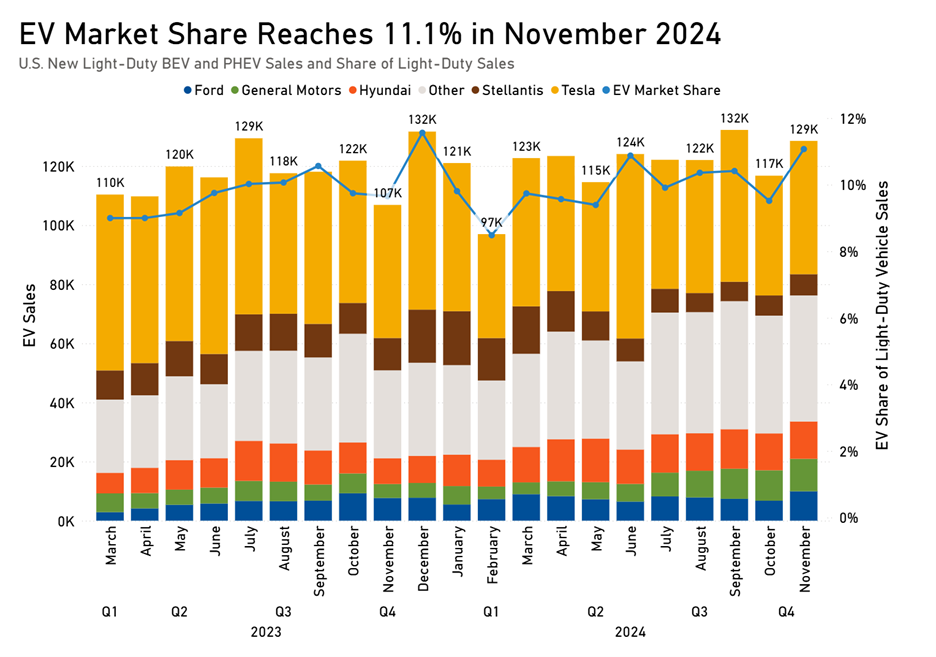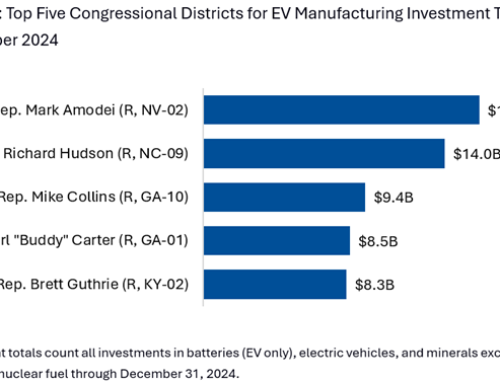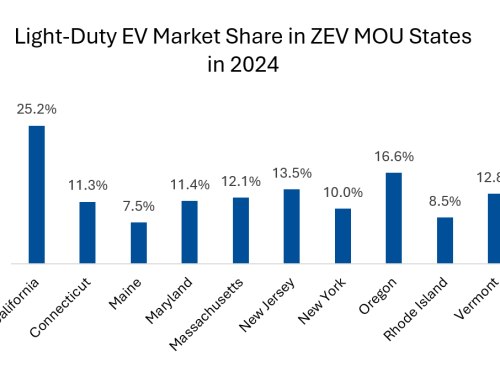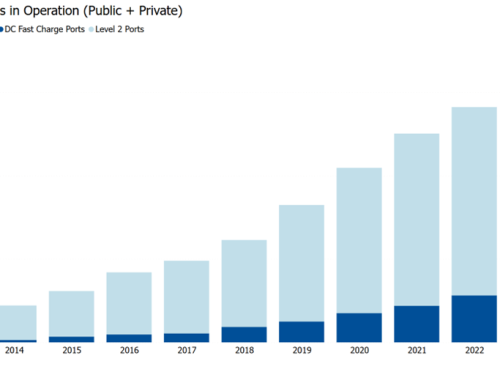
Source: EV Market Dashboard
On Donald Trump’s first day of office, the President signed a slew of executive orders taking aim at several Biden-era climate initiatives, including those in favor of electric vehicles (EVs), signaling a shift in federal policy efforts to accelerate EV adoption.
Two key themes emerge from Trump’s executive actions as is relevant to EVs: promoting consumer choice and advancing U.S. manufacturing. The Trump Administration prefers a market where consumers can choose from a broad range of vehicle options, including EVs, without heavy influence from federal policy. Per Trump’s executive order, promoting consumer choice is “essential for economic growth and innovation.” Moreover, Trump’s executive orders emphasize an overarching goal of his administration, which is to reduce economic dependence on foreign countries, especially China, by strengthening domestic manufacturing and onshoring critical mineral supply chains.
One of Trump’s first executive orders, “Unleashing American Energy,” eliminated the EV “mandate.” While not actually an EV mandate, Trump’s order refers to the Environmental Protection Agency’s (EPA) vehicle pollution rules finalized last year, which would likely lead to automakers increasing their share of EV sales to meet certain emissions standards. The order also calls for the termination of state emissions waivers that restrict gas-powered car sales, likely targeting a waiver granted to California by the EPA which allows the state to phase out gas-powered car sales by 2035. Finally, the same executive order paused billions of dollars in unspent federal funding that Congress had earmarked to build a nationwide network of EV charging infrastructure, affecting the National Electric Vehicle Infrastructure (NEVI) and Charging and Fueling Infrastructure (CFI) grant programs. And on Thursday, a memo from the Federal Highway Administration (FHWA) officially put the NEVI program on hold while the program guidance is revised, decertifying all state plans that had been approved for fiscal years 2022 through 2025 funding.
Outside of federal funding programs but equally as critical, the President is also likely to push Congress to try to repeal EV subsidies, a key policy incentive designed to make EVs more affordable and encourage their adoption. As such, certain EV tax credits, such as the New Clean Vehicle Tax Credit (30D), are potentially at risk.
Despite the shifting political landscape in Washington, the EV market continues to expand. In November 2024, nearly 129,000 light-duty EVs were sold in the United States, accounting for an 11.1 percent market share. This represents a 299 percent increase from November 2021, when Joe Biden was elected President of the United States, and a 20 percent increase from November 2023 sales.
Tesla remains the sales leader with nearly 45,000 EVs sold in November 2024. Other automakers, however, are increasing their market share. Non-Tesla sales saw a 35 percent year-over-year increase, rising from 61,822 sales in November 2023 to 83,413 sales in 2024, pointing to an increasingly competitive and diverse market with more consumer options. Following Tesla, Hyundai reported nearly 13,000 EV sales and General Motors reported nearly 11,000 sales in November, a sales record for the American company.
On the policy front, states have made great progress in implementing the NEVI program with a noticeable shift in momentum in 2024.
According to the NEVI Awards Dashboard, developed by Atlas in partnership with the National Association of State Energy Offices (NASEO) and the Joint Office of Energy and Transportation (JOET), 37 states have so far awarded at least $497 million of funding to EV service providers to install EV charging stations alongside highway corridors. This represents 940 sites and upwards of 3,000 fast-charging ports. Progress is spread across 44 states that have initiated the contracting process in some capacity and 14 states that have at least one operational NEVI-funded charging station, the vast majority of which opened in 2024. Despite states’ efforts to disburse funding, NEVI faces uncertainty under Trump, which has pumped the breaks on the program.
Our EV Hub team will continue to monitor and report on federal EV policy developments under the Trump Administration. In the meantime, view our EV Market Dashboard for the latest on sales and our NEVI Awards Dashboard for the state of the program ahead of Thursday’s move by FHWA to pause it.


